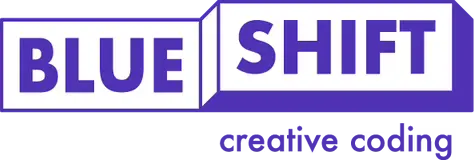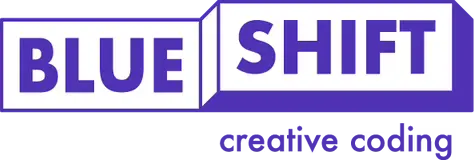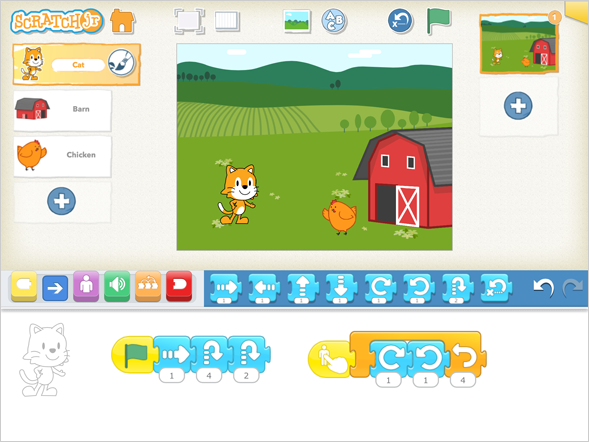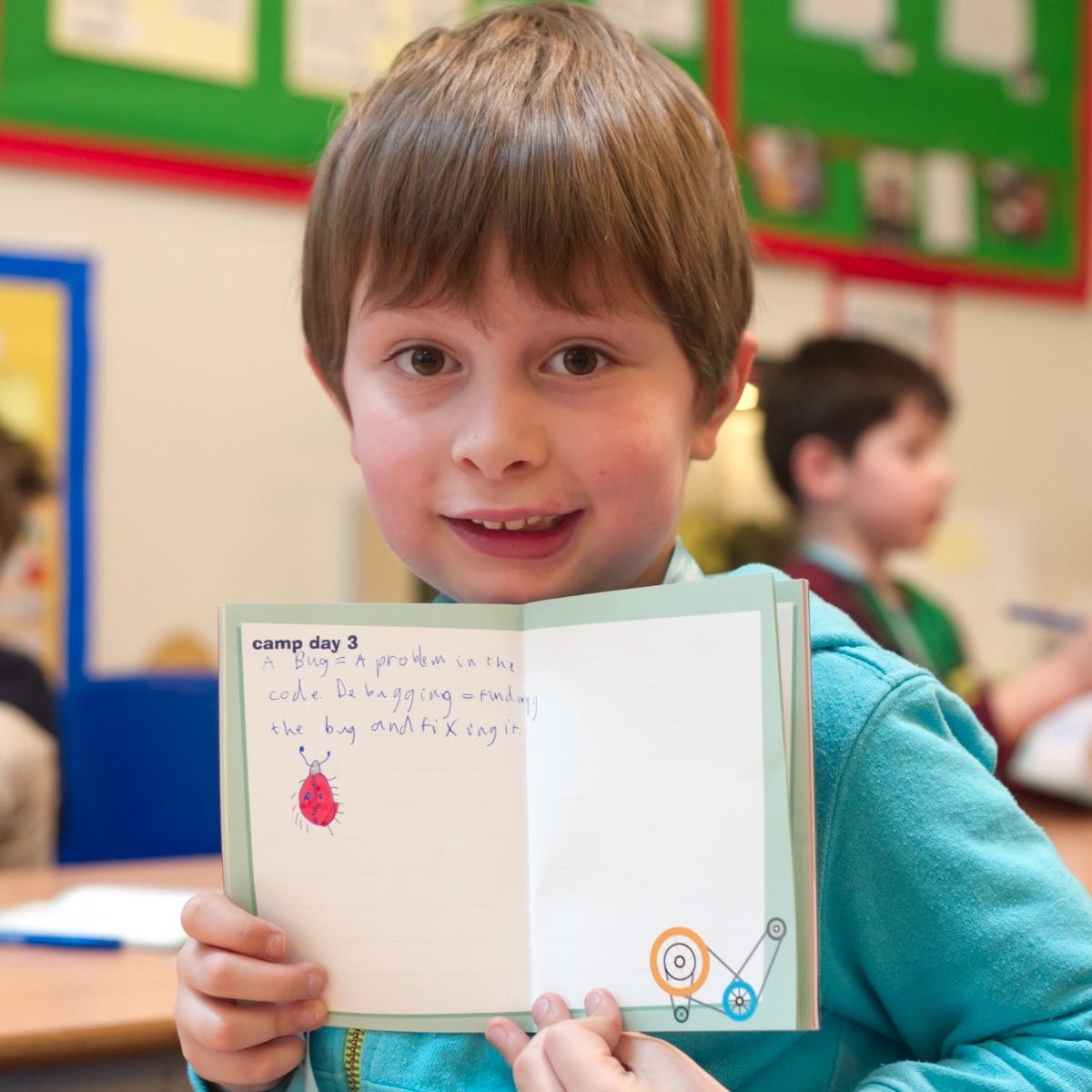Why should my 5 year old start coding?
With toys like the Fisher Price Code-a-Pillar and coding board games like Robot Turtles, it feels like the suggested age (and pressure!) for children to begin coding keeps getting younger and younger. When it comes to ages though, the American Academy of Pediatrics recommends that children aged two and under have zero hours of screen time. At around four or five, children might be interested in playing games or apps on an iPad or tablet. Child-friendly apps like Hopscotch and Daisy the Dinosaur teach kids how to navigate early logic puzzles through gaming. However, the most common avenue into children’s computing is through the block-based introductory coding language Scratch Jr. With Scratch Jr., kids can move different command blocks in order to create sequences that will construct their own games and animations.
At blue{shift}, we start our coding curriculum with our Mini Coders camp for children aged five to seven. For these young programmers, we combine computer time with crafts, writing exercises, and basic touch typing to produce a well-rounded, individualised learning journey. Throughout the week, our goals are twofold for these kids: exploration and inspiration. Children explore the basic concepts of coding, robotics, typing, and logic, and we hope to inspire them to bring their ideas to life with tactile learning -from Ozobots to Lego WeDos. After one week, kids gain confidence in their computing skills and walk away with a spark for coding.
Why do we target this age range? At this time in their lives, kids are excited, adaptable, and ready to learn, and there are many benefits for starting coding at this age demographic — academic advancement, abstract thinking, and most importantly, creativity. Children have a headstart on their computing curriculum, and by learning to “think like a programmer,” kids are able to problem-solve with abstract and algebraic logic. Most importantly, 5–7 year old kids are still acting, dreaming, and creating like kids! They are imaginative, adaptable, and excited to apply their creativity to computing.
“How can we help young people develop as creative thinkers so that they’re prepared for life in this ever-changing world?”
― Mitchel Resnick, Lifelong Kindergarten
Let’s help prepare the littlest of coders by opening their minds rather than pressuring them into computing. At this age, it is about learning the basics and opening the door to curiosity in computing. Though children can learn new languages like coding quickly, it important to recognise that programming this young is not so much about starting a child’s path to the programming industry but rather to spark their creativity and problem-solving processes.
If your child is interested in jumping into coding or you would like to learn more as a parent, feel free to contact us or join us at one of our Mini Coders camps!








